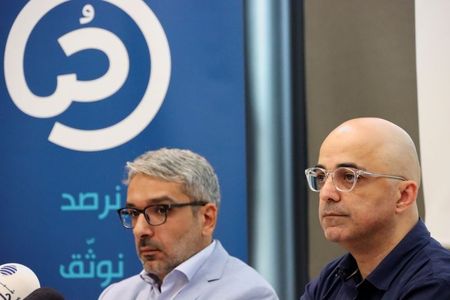
Digital rights activists accuse Facebook of anti-Palestinian bias

By Zainah El-Haroun
RAMALLAH, West Bank (Reuters) – Palestinian activists contended Facebook and other social media platforms have censored criticism of Israel in response to government pressure and launched a campaign seeking to halt the activity.
Palestinians have complained that political posts were removed or demoted especially by Facebook and Instagram, which Facebook owns.
The 7amleh digital rights organisation launched a website called 7or on Monday to call attention to its position, saying it has documented 746 rights violations in 2021 so far. “We see it as a war on the Palestinian narrative, as an attempt to silence them speaking about their oppression and suffering,” said 7amleh founder Nadim Nashif.
Facebook responded to a request for comment by referring to the work of its independent Oversight Board. The board called in September for moderation of Arabic and Hebrew content to be reviewed for potential bias. The company said it would implement recommendations from that review.
During a May war between Israel and Palestinian militants in Gaza, Israeli Defence Minister Benny Gantz urged Facebook executives to be more proactive in removing content from “extremists elements that are seeking to do damage to our country.” Internal Facebook documents seen by Reuters showed that staff members expressed concern over demotion of posts by Palestinian activist and writer Mohammed El-Kurd.
El-Kurd said views of his posts on Instagram, where he has 744,000 followers, decreased dramatically during Palestinian protests in May in Sheikh Jarrah, a Jerusalem neighbourhood where Palestinians are at risk of losing their homes to Jewish settlers. “I have suspected this baseless silencing of my account for a long time,” El-Kurd said. “The Israeli government is clearly threatened by Palestinian voices.”
Social media user Tala Ghannam said her posts have been removed from Facebook and Instagram for violating community guidelines, especially those tagged “#SaveSheikhJarrah” in support of Palestinian families at risk of eviction.
“I felt at that moment that I don’t have the right to freedom of opinion and expression,” Ghannam said.

















POST COMMENTS (0)